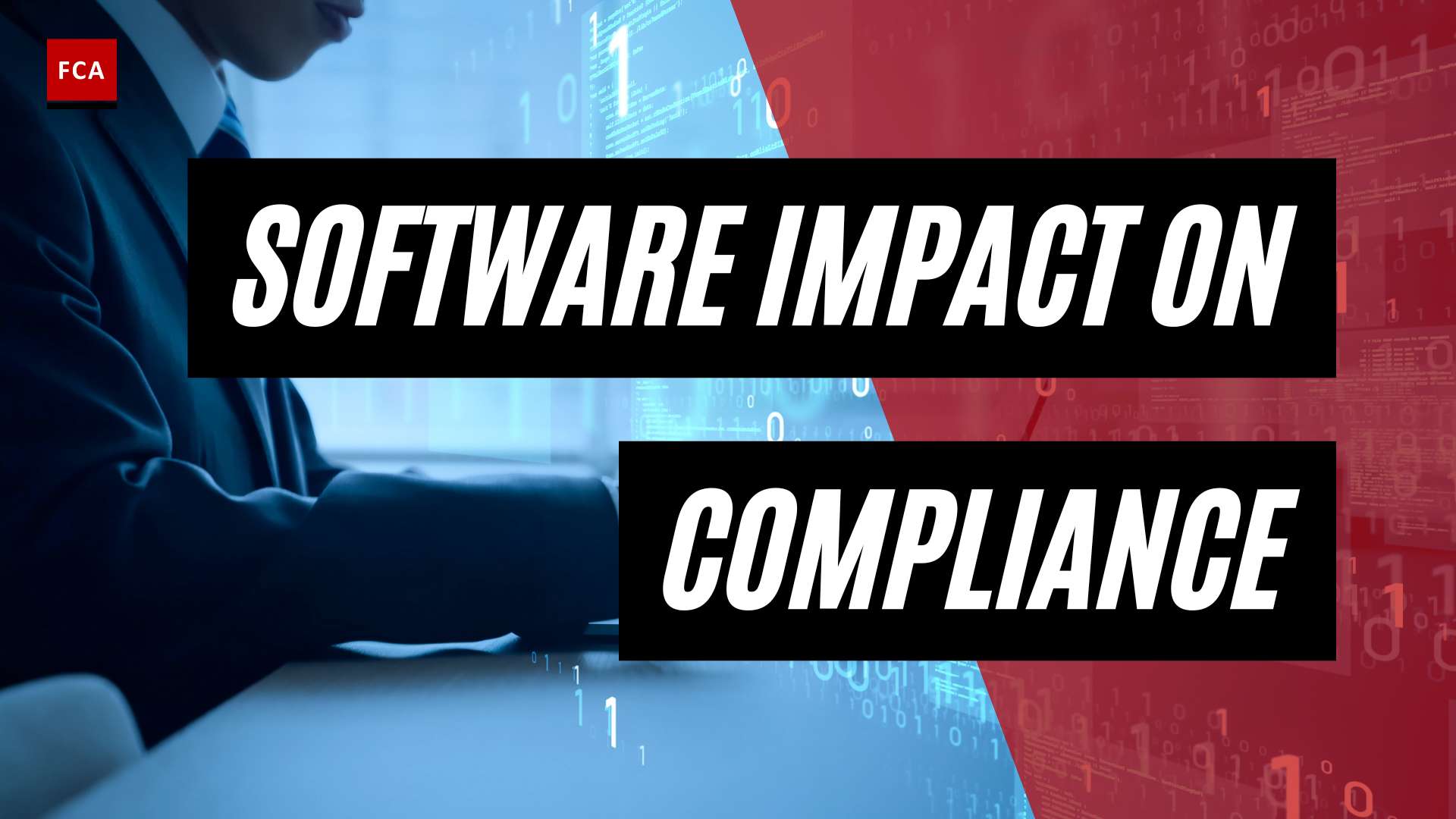Overview of AML Regulatory Bodies
To effectively combat money laundering and the financing of terrorism, various regulatory bodies play a crucial role in establishing and enforcing Anti-Money Laundering (AML) laws and regulations. Let’s explore a few key global AML regulatory bodies.
Financial Crimes Enforcement Network (FinCEN)
The Financial Crimes Enforcement Network (FinCEN) is a regulatory body within the United States Department of the Treasury. It serves as the designated administrator of the Bank Secrecy Act (BSA), which was established in 1970 to safeguard the financial system from financial crimes such as terrorist financing, money laundering, and illicit activities. Over the years, numerous laws have been enacted to enhance and amend the BSA, providing law enforcement and regulatory agencies with effective tools to combat money laundering (Financial Crimes Enforcement Network).
Financial Action Task Force (FATF)
The Financial Action Task Force (FATF) is an inter-governmental body that sets international standards and promotes the implementation of legal, regulatory, and operational measures to combat money laundering, terrorist financing, and other threats to the integrity of the international financial system. Established in 1989 by the G7, the FATF operates as a global standard-setter, providing guidance and recommendations to member jurisdictions and evaluating their compliance with the established standards. The FATF’s guidelines have been widely adopted and influence AML legislation and practices across the globe (Dow Jones).
European Union (EU) AML Directives
The European Union (EU) has taken significant steps to prevent the use of the financial system for money laundering and terrorist financing. The EU has implemented the Fourth and Fifth Anti-Money Laundering Directives (AMLD), which set out comprehensive AML requirements for EU member states. These directives aim to harmonize AML regulations across the EU and strengthen the framework for preventing money laundering and terrorist financing activities. Member states are required to transpose the directives into their national legislation and ensure compliance with the established standards (Dow Jones).
Monetary Authority of Singapore (MAS)
The Monetary Authority of Singapore (MAS) plays a pivotal role in combating money laundering and terrorist financing within Singapore’s financial system. MAS introduced a comprehensive regulatory framework in 2019 to strengthen the country’s AML and Counter-Financing of Terrorism (CFT) controls. This framework consolidates AML/CFT requirements across various sectors of the financial industry, ensuring a robust and coordinated approach to combating illicit financial activities (Dow Jones).
These regulatory bodies, such as FinCEN, FATF, EU AML Directives, and MAS, provide oversight, establish standards, and enforce AML laws and regulations to safeguard the integrity of the global financial system. The collaborative efforts of these organizations help create a robust and coordinated global AML regulatory framework, ensuring transparency, integrity, and stability in financial transactions worldwide.
AML Laws and Regulations in the United States
In the United States, the fight against money laundering and terrorist financing is governed by various laws and regulations. Understanding these AML regulations is crucial for financial institutions and businesses operating within the U.S. financial system to ensure compliance and mitigate the risk of illicit activities. Let’s explore two key AML laws in the United States: the Bank Secrecy Act (BSA) and the USA PATRIOT Act.
Bank Secrecy Act (BSA)
Enacted in 1970, the Bank Secrecy Act (BSA) forms the cornerstone of anti-money laundering (AML) laws in the United States. The BSA requires banks and financial institutions to establish and maintain effective AML programs to detect and prevent money laundering and other financial crimes. Key components of the BSA include:
- Internal AML Programs: Banks and financial institutions are required to implement comprehensive AML programs that include policies, procedures, and controls to identify and report suspicious transactions.
- Reporting and Record-Keeping: The BSA mandates financial institutions to file Currency Transaction Reports (CTRs) for cash transactions exceeding $10,000 in a single day. Additionally, Suspicious Activity Reports (SARs) must be filed for transactions that may indicate potential money laundering or other illicit activities.
- Customer Due Diligence (CDD): Financial institutions must conduct risk-based customer due diligence, which includes verifying the identity of customers, understanding the nature and purpose of customer relationships, and monitoring transactions for suspicious activity.
- Screening Requirements: The BSA imposes obligations on financial institutions to screen customers against lists of politically exposed persons (PEPs), sanctioned individuals and entities, and adverse media.
For more information on AML legislative requirements in the United States, you can visit our comprehensive guide on AML legislation.
USA PATRIOT Act
The USA PATRIOT Act, signed into law in 2001, significantly expanded the scope and sanctions of AML regulations in the United States. The Act was introduced in response to the September 11 terror attacks and aims to enhance national security and combat money laundering and terrorist financing. Key provisions of the USA PATRIOT Act include:
- Customer Identification Program (CIP): Financial institutions are required to establish CIPs to verify the identity of customers opening new accounts. This includes collecting and verifying customer information, such as name, address, date of birth, and identification documents.
- Enhanced Due Diligence (EDD): The USA PATRIOT Act introduced EDD requirements for financial institutions to identify and mitigate risks associated with higher-risk customers, such as foreign correspondent banks and private banking clients.
- Information Sharing: The Act encourages information sharing between financial institutions and government agencies to combat money laundering, terrorist financing, and other financial crimes.
- Foreign Correspondent Accounts: The Act imposes obligations on U.S. financial institutions maintaining correspondent accounts for foreign banks to implement due diligence measures and report suspicious transactions.
To learn more about the USA PATRIOT Act and its impact on AML regulatory requirements, you can visit our detailed guide on AML regulatory requirements.
Role of the Federal Deposit Insurance Corporation (FDIC)
The Federal Deposit Insurance Corporation (FDIC) plays a key role in the implementation and enforcement of AML laws and regulations in the United States. As an independent federal agency, the FDIC provides resources, documentation, and guidance for banks and other stakeholders in the banking industry to ensure compliance with AML requirements.
The FDIC serves as a pre-eminent source of U.S. banking industry research, offering information on laws and regulations, quarterly banking profiles, working papers, and state banking performance data. It provides valuable insights and updates on policy changes for banks, helping them stay informed and compliant with AML laws.
Additionally, the FDIC conducts events such as conferences and seminars to educate stakeholders, including bankers, analysts, and consumers, about the latest banking issues and policy changes. These events may cover AML laws and regulations, providing valuable knowledge and guidance to ensure compliance.
To stay up to date with the latest AML regulatory updates and guidance, it is essential for financial institutions and professionals working in AML and compliance roles to regularly refer to the resources and information provided by the FDIC.
AML Laws and Regulations in the European Union
The European Union (EU) has taken significant steps to combat money laundering and terrorist financing through the implementation of Anti-Money Laundering Directives (AMLD) (Dow Jones). These directives aim to prevent the use of the financial system for illicit purposes and to establish uniform AML regulations across EU member states. Two key directives in this framework are the Fourth and Fifth Anti-Money Laundering Directives (AMLD).
Fourth and Fifth Anti-Money Laundering Directives (AMLD)
The Fourth Anti-Money Laundering Directive (4AMLD) was introduced by the EU in 2015 and required member states to implement its provisions into their national legislation. The directive focused on enhancing transparency, strengthening customer due diligence measures, and improving cooperation between financial institutions and regulatory authorities.
Building upon the 4AMLD, the Fifth Anti-Money Laundering Directive (5AMLD) was implemented on January 10, 2020. The 5AMLD further expanded AML regulations by addressing emerging risks and new challenges in the financial sector, including virtual currencies and prepaid cards. It introduced additional measures to enhance the transparency of beneficial ownership information, improve the identification and verification of customers, and strengthen the powers of financial intelligence units (FIUs).
To ensure compliance with these directives, EU member states are required to transpose the provisions of the AMLDs into their national legislation. This transposition process ensures consistency and harmonization of AML regulations across the EU, contributing to a more robust and unified AML framework.
National Transposition of AML Directives
Each EU member state is responsible for transposing the AML directives into their national legislation within specified deadlines. This enables them to adapt the directives to their specific legal and regulatory frameworks while ensuring compliance with the EU standards.
The transposition process involves incorporating the requirements of the AML directives into domestic laws and regulations. This includes establishing procedures for customer due diligence, reporting suspicious transactions, and implementing effective AML controls and measures. The national transposition also enables regulatory authorities to enforce the directives and monitor compliance by financial institutions operating within their jurisdiction.
It is important for financial institutions and professionals working in AML compliance to stay updated on the national transposition of the AML directives in their respective countries. This ensures adherence to the latest AML regulations and helps prevent potential compliance gaps.
By implementing the Fourth and Fifth Anti-Money Laundering Directives (AMLD), the European Union aims to create a strong and harmonized AML framework across its member states. The transposition of these directives into national legislation ensures consistent application of AML measures, contributing to the prevention and detection of money laundering and terrorist financing activities within the EU.
AML Laws and Regulations in Singapore
Singapore has implemented a comprehensive regulatory framework to strengthen its anti-money laundering (AML) and counter-financing of terrorism (CFT) controls. The Monetary Authority of Singapore (MAS) introduced this framework in 2019, consolidating AML/CFT requirements across various sectors of the financial industry (Dow Jones).
Regulatory Framework for AML and CFT Controls
The regulatory framework in Singapore encompasses a range of measures to combat money laundering and terrorist financing. It includes laws, regulations, guidelines, and supervisory expectations that financial institutions must adhere to. The framework sets out clear standards and requirements to ensure the proper implementation of AML and CFT controls.
The framework covers areas such as customer due diligence (CDD), record-keeping, reporting of suspicious transactions, and internal controls. Financial institutions operating in Singapore are required to establish robust policies, procedures, and systems to prevent and detect money laundering and terrorist financing activities. These measures help maintain the integrity and stability of the financial system.
Role of the Financial Intelligence Unit (FIU)
In Singapore, the Financial Intelligence Unit (FIU) plays a crucial role in combating money laundering and terrorist financing. The FIU is a central, national agency responsible for receiving, analyzing, and disseminating suspicious transaction reports and other relevant information regarding money laundering and terrorism financing (Dow Jones). It acts as the national center for the receipt and analysis of information relevant to combating money laundering and terrorist financing activities.
The FIU works closely with financial institutions, law enforcement agencies, and other relevant stakeholders to gather and analyze information on suspicious transactions. This collaborative approach enhances the effectiveness of AML efforts and helps identify and disrupt illicit financial activities.
Compliance Requirements for Financial Institutions
Financial institutions operating in Singapore are subject to stringent AML and CFT compliance requirements. These requirements include conducting customer due diligence (CDD) measures, ongoing monitoring of customer transactions, and reporting suspicious activities to the authorities.
Financial institutions must establish risk-based approaches to identify and assess the money laundering and terrorist financing risks associated with their customers and transactions. They are also required to implement internal controls and procedures to mitigate these risks effectively.
To comply with AML laws and regulations in Singapore, financial institutions need to stay updated with regulatory developments and ensure their AML/CFT policies and procedures align with the regulatory requirements. Regular training and awareness programs are essential to equip employees with the knowledge and skills necessary to fulfill their AML obligations.
By adhering to the regulatory framework and implementing robust AML and CFT controls, financial institutions contribute to safeguarding Singapore’s financial system from abuse by criminals and illicit actors.
To learn more about AML laws and regulations in other regions, refer to the respective sections on AML Laws and Regulations in the United States and AML Laws and Regulations in the European Union.
Consequences of Non-Compliance with AML Laws
Ensuring compliance with Anti-Money Laundering (AML) laws and regulations is of utmost importance for financial institutions and individuals involved in financial transactions. Non-compliance can lead to severe consequences, including financial penalties and fines, criminal charges and imprisonment, as well as regulatory enforcement actions and sanctions.
Financial Penalties and Fines
Failure to comply with AML regulations can result in hefty fines, ranging from tens of thousands to millions of dollars, depending on the severity of the violation and the jurisdiction. These financial penalties can significantly impact the profitability and stability of financial institutions (Financial Crime Academy).
It is essential for financial institutions to allocate adequate resources and implement robust AML programs to minimize the risk of non-compliance. By doing so, they can avoid the financial repercussions associated with violations of AML laws and regulations.
Criminal Charges and Imprisonment
In addition to financial penalties, non-compliance with AML laws can lead to criminal charges and even imprisonment for individuals involved in money laundering or other illicit activities. Law enforcement agencies are committed to combating financial crimes and take non-compliance seriously. The consequences of criminal charges and imprisonment pose a significant threat to the reputation and longevity of individuals and organizations involved (Financial Crime Academy).
It is crucial for individuals to understand their obligations under AML laws and regulations, as well as the potential legal consequences of non-compliance. Compliance training and robust internal controls can help mitigate the risk of criminal charges and imprisonment.
Regulatory Enforcement Actions and Sanctions
Regulatory authorities, such as the Financial Crimes Enforcement Network (FinCEN) in the United States and the Financial Conduct Authority (FCA) in the United Kingdom, conduct regular inspections and audits to ensure that financial institutions are following AML regulations. Failure to demonstrate compliance during these audits can result in enforcement actions and sanctions.
Regulatory enforcement actions can include fines, restrictions on business activities, and the revocation of licenses to operate. These actions can have significant reputational and financial implications for financial institutions, jeopardizing their ability to conduct business effectively (Financial Crime Academy).
To mitigate the risk of regulatory enforcement actions and sanctions, financial institutions must establish robust AML compliance programs, including risk assessments, due diligence procedures, and ongoing monitoring. Regular internal audits and external reviews can help identify and address any compliance gaps before they lead to serious consequences.
Complying with AML laws and regulations is not only a legal requirement but also essential for maintaining trust, credibility, and the integrity of the financial system. Financial institutions and individuals must prioritize AML compliance to safeguard against the severe consequences of non-compliance. By dedicating resources to AML training, implementing effective internal controls, and staying informed about regulatory updates, stakeholders can protect themselves and contribute to a stronger, more secure financial environment.
Technology and AML Compliance
In the ever-evolving landscape of AML laws and regulations, technology plays a crucial role in assisting financial institutions with their compliance efforts. AML technology providers offer innovative solutions that enable financial institutions to meet regulatory requirements effectively and efficiently. These solutions encompass a range of tools and platforms designed to enhance AML compliance processes.
Role of AML Technology Providers
AML technology providers play a vital role in supporting financial institutions in their AML compliance efforts. They offer a variety of solutions, including transaction monitoring systems, customer risk profiling tools, and regulatory reporting platforms. These tools harness advanced analytics, artificial intelligence, machine learning, and big data technologies to analyze large volumes of transactional data in real-time, enabling the identification of suspicious patterns or anomalies (Financial Crime Academy).
By leveraging these technologies, financial institutions can enhance their capabilities to detect and prevent financial crimes. The use of AML technology enables more efficient and accurate monitoring of transactions, leading to improved identification of potential money laundering activities. These tools streamline compliance processes, reduce manual efforts, and provide financial institutions with more comprehensive insights into customer behavior and transactional patterns.
Innovative Solutions for AML Compliance
AML technology providers offer a range of innovative solutions to address the specific compliance needs of financial institutions. Some of the key solutions include:
-
Transaction Monitoring Systems: These systems employ advanced algorithms and analytics to monitor and analyze transactions in real-time. They help identify suspicious activities, flagging transactions that deviate from regular patterns or exhibit characteristics associated with money laundering or other illicit activities.
-
Customer Risk Profiling Tools: These tools assist in assessing the risk associated with each customer. By analyzing various factors such as transaction history, geographic location, and customer behavior, financial institutions can categorize customers into different risk levels. This enables them to allocate resources more effectively and focus their compliance efforts on higher-risk individuals or entities.
-
Regulatory Reporting Platforms: AML technology providers offer platforms that facilitate the generation and submission of regulatory reports. These platforms streamline the reporting process, ensuring that financial institutions meet their obligations to provide accurate and timely reports to regulatory authorities.
Benefits of Using AML Technology
The adoption of AML technology brings several benefits to financial institutions in their compliance efforts. Some of the key advantages include:
-
Enhanced Efficiency: AML technology streamlines compliance processes, reducing the time and effort required for manual tasks. This allows compliance teams to focus on more strategic and value-added activities.
-
Improved Accuracy: By leveraging advanced analytics and machine learning capabilities, AML technology helps minimize false positives and false negatives, leading to more accurate detection of suspicious activities.
-
Real-time Monitoring: AML technology enables financial institutions to monitor transactions in real-time, facilitating prompt detection and response to potential money laundering activities.
-
Comprehensive Risk Assessment: The use of AML technology allows for more comprehensive risk profiling of customers, enabling financial institutions to identify and mitigate risks more effectively.
-
Regulatory Compliance: Implementing robust AML technology solutions helps financial institutions meet their regulatory obligations and stay updated with the evolving AML regulatory landscape.
In conclusion, AML technology plays a pivotal role in assisting financial institutions in their AML compliance efforts. By leveraging innovative solutions provided by AML technology providers, financial institutions can enhance their monitoring capabilities, improve efficiency, and mitigate the risks associated with money laundering and other financial crimes.
Importance of AML Compliance
In the global fight against financial crimes, compliance with Anti-Money Laundering (AML) laws and regulations is of paramount importance. AML laws and regulations require financial institutions, including banks, to conduct customer due diligence (CDD), assess the risks of money laundering and terrorist financing, and monitor transactions for suspicious activities (Financial Crime Academy). Understanding the significance of AML compliance helps ensure transparency, integrity, and the safeguarding of the financial system.
Ensuring Transparency and Integrity
AML compliance plays a crucial role in ensuring transparency and integrity within the financial industry. By adhering to AML laws and regulations, financial institutions demonstrate their commitment to ethical business practices and contribute to the overall integrity of the global financial system. Compliance measures, such as customer due diligence and transaction monitoring, help identify and prevent illicit activities like money laundering and terrorist financing. Through transparency and accountability, AML compliance assists in maintaining public trust and confidence in the financial sector.
Maintaining Trust and Credibility
Compliance with AML laws and regulations is not only a legal requirement but also essential for maintaining trust and credibility with customers, regulators, and the public. Financial institutions that prioritize AML compliance build a reputation as responsible and trustworthy entities. By implementing robust AML measures, institutions demonstrate their commitment to combating financial crimes, protecting their customers, and upholding the highest standards of integrity. This commitment helps foster long-term relationships with clients and stakeholders, ultimately enhancing the institution’s credibility within the industry.
Safeguarding the Financial System
One of the primary objectives of AML laws and regulations is to safeguard the financial system from abuse by criminals and illicit actors. Money laundering and terrorist financing pose significant threats to the stability and security of the global financial ecosystem. By enforcing AML compliance, financial institutions contribute to the prevention and detection of these illicit activities. AML measures, such as enhanced due diligence and suspicious transaction reporting, help identify and disrupt the flow of illicit funds, thereby safeguarding the financial system from exploitation and maintaining its integrity.
In summary, AML compliance is not only a legal requirement but also a critical responsibility for financial institutions. Compliance with AML laws and regulations ensures transparency, maintains trust and credibility, and safeguards the financial system from misuse. By adhering to these regulations, financial institutions contribute to the overall integrity of the industry and play a vital role in preventing financial crimes on a global scale.








